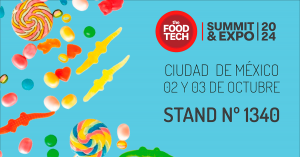
Agar has emerged as a revolutionary option in the dairy sector, increasingly used in place of traditional carrageenans. Unlike the latter, which require the addition of external agents for gelation and can influence the flavor, color, and aroma of foods, agar generates a physical gel through hydrogen bond formation, without the need for additional additives. This characteristic allows agar to provide greater stability and extend the shelf life of dairy products, thanks to its low reactivity with milk proteins.
Agar varieties that dissolve at low temperatures are particularly beneficial, as they prevent the denaturation of proteins during the dissolution process, ensuring a uniform and consistent texture. For this reason, its use has increased in the production of dairy desserts and spreadable cheeses, where it has been shown to improve texture, reduce whey production, and enhance the cutting characteristics of cheeses.
Rapid Agar varieties offer innovative solutions for cheeses and fermented dairy products, optimizing both the texture and stability of the final products. Those that dissolve at a temperature of 80ºC not only save time and costs but also maintain the organoleptic properties in heat-sensitive products. On the other hand, agar with rapid dissolution and low gelling levels provides a creamy and smooth texture in the final product.
This transition toward the use of agar not only benefits product quality but also represents a positive evolution in formulation within the dairy industry.
Contact our experts to resolve all your questions!





